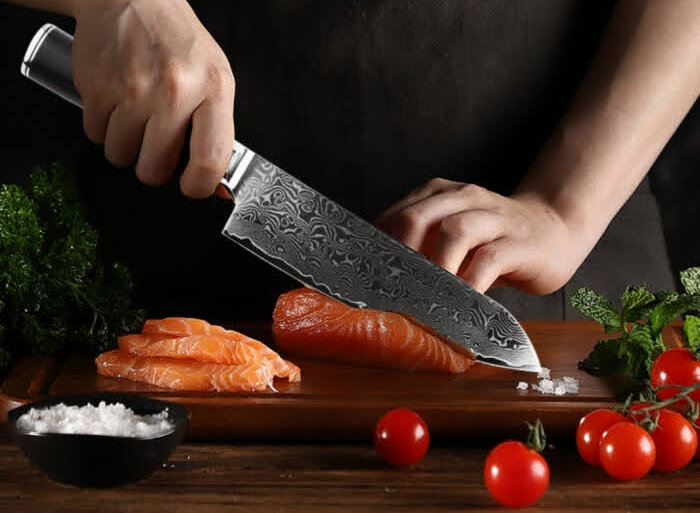In the realm of culinary arts, where precision and performance are paramount, few instruments are as revered as the traditional Damascus knives. These knives not only symbolize mastery and heritage but also promise an unparalleled culinary experience. With roots tracing back centuries, Damascus steel's unique wavy pattern and resilience have etched its legacy in the culinary world.
Delving into the art of Damascus knives allows us to appreciate the fusion of form and functionan essential aspect for kitchen professionals. In the pursuit of the perfect culinary instrument, understanding the depth and craftsmanship behind these blades becomes indispensable. From seasoned chefs to culinary enthusiasts, the allure of owning a traditional Damascus knife is universal. Let's explore why these knives are considered a cornerstone in kitchens worldwide.

The Origins of Damascus Steel
The origins of Damascus steel can be traced back to ancient times, a period shrouded in mystery and legend. It is said that the original techniques for crafting this steel originated near Damascus, Syria. The intricate layers and water-like patterns on the blade were both an art form and a testament to the technology of the time. Over the centuries, many have sought to replicate the distinct properties of these blades, leading to a revival in modern times.
For more on the historic journey of Damascus steel, visit the history of Damascus knives.
Technology and Technique
The creation of a traditional Damascus knife is an intricate process involving the layering of different types of steel. This folding technique not only imparts strength but also creates the hypnotic patterns characteristic of these blades. Each knife becomes a unique piece of art, making its way to kitchens where precision is key. For todays professionals, understanding this process enhances not only the respect for the craft but also informs usage techniques that leverage these knives' full potential.
To further appreciate these practices, explore the exhaustive details at the CPD Lab on Damascus.
Advantages for the Culinary Professional
For kitchen professionals, the allure of traditional Damascus knives extends beyond aesthetics. These blades offer superior edge retention and a remarkable balance that makes precise cutting an art form. The unique steel composition ensures a sharpness that chefs across the globe rely on for both delicate and rigorous tasks. Moreover, a traditional Damascus knife is more than just a tool; it is a companion in the culinary journey, providing consistently reliable results.
A Benchmark for Quality
While many brands produce Damascus-inspired knives, selecting one crafted using traditional methodologies ensures you receive a tool that stands the test of time. Enthusiasts often compare brands like Benchmade, showing how some artisans remain faithful to ancient techniques, ensuring unparalleled performance.
Preservation and Care
Maintaining a traditional Damascus knife is relatively straightforward but crucial for longevity. Regular maintenance like careful handwashing and periodic honing ensures that the blade retains its edge and visual appeal. Additionally, storing these knives properly protects them from unnecessary wear. For those interested in learning more about traditional knives' care and upkeep, comprehensive guides (e.g., care tips) are invaluable resources.

Frequently Asked Questions
What makes Damascus steel unique?
The uniqueness of Damascus steel lies in its mesmerizing patterns and the meticulous process of creating it, which combines folding layers of different metals for strength and flexibility.
How does one care for a traditional Damascus knife?
To care for a traditional Damascus knife, hand wash and dry thoroughly; use a honing steel to maintain the edge and store it safely to prevent damage.
Are there cost-effective options for professional chefs?
Yes, while traditional Damascus knives can be costly due to their craftsmanship, many brands offer reasonably priced options that don't compromise on quality. Some examples include Pakistani Damascus knives.
Traditional Damascus knives are more than just kitchen toolsthey are a fusion of ancient artistry and modern precision. For chefs poised on the cutting edge of culinary brilliance, owning a piece of such heritage transforms every meal into a masterpiece. To dive deeper into the intricate world of these knives, explore more through resources like HowStuffWorks on Damascus Steel.
This article contains affiliate links. We may earn a commission at no extra cost to you.


























